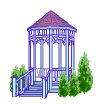 |
|
| a man in Croatia | |
 |
|
| a man in Croatia | |
Four and a half years have passed since I moved to Italy and started teaching go. Sometimes it seems a long time, sometimes short; sometimes I feel I've accomplished nothing, at other times that I've got something done. Well, anyway, it's still much too early to draw any conclusions. . I've travelled to many different places to teach, but once I reached the mark of 20 countries the number stopped increasing. To tell the truth, recently I've come to feel there's a limit to the number of countries I can just blithely visit. What really helps is continued efforts, so instead of making just one visit I aim at a long-term, if for that reason more exiguous, relationship. Of course, fresh encounters are also important, so I hope to strike a balance between the two. |
|
 |
|
| (in a train) | |
| In October, I made my first visit for a long time to a new country, moreover, one relatively close to Italy: Croatia. Probably this is a country with which most Japanese are not very familiar. Until independence about ten years ago, it was a part of Yugoslavia. Going from Italy, there's a bit of Slovenia sandwiched in-between; it's a couple of dozen kilometres to the border. It also faces Italy across the Adriatic. Its 600-kilometre coast is a famous summer vacation area. | |
| The most convenient way to go to Zagreb, the capital, is to catch the
night train from the city of canals, Venice, to Budapest. It's about 700
kilometres from Milan, so it's an overnight trip. Incidentally, this popular
night train, which links some of the most popular cities in Europe, is
jam-packed with travellers in the summer, like rush hour on a commuter
train. I had an unforgettable experience once when I hopped on to it without
a reservation and, with nowhere else to go, ended up spending a night in
front of the toilet. Fortunately this time it was the off-season: the train
was deserted, so I enjoyed a comfortable trip. The only problem was that
I could get hardly any sleep, as every time you crossed a border they checked
your passport and your luggage. |
|
 |
|
| (Mr.Mladen&Kids) | |
| On the outskirts of Zagreb there's a place called Gorica. There's a very
enthusiastic go teacher here, which is the reason I was making the trip.
His name is Mladen (to my ears, it sounds like "Mada" or "Maden").
He finishes up his job by lunch time, then spends the rest of the day until
the evening every day visiting five places to teach go: all four elementary
schools in Gorica and an institute for children with mental disorders.
On top of that, he holds a go meeting for children every Saturday morning.
He does all this as an unpaid volunteer. Apparently he will soon reach retirement age at his job, which I guess makes him nearly 60. He started his go teaching just before the troubles at the time of independence, some ten years ago. He had to stop for several years because of war, but he resumed his activity three years ago. |
|
| timed my visit so that I could attend his weekend go meeting and also accompanied him to an elementary school. Croatian elementary schooling is split into two parts: morning classes or afternoon classes. The children therefore have half the day free and they can use this time for extracurricular activities. Mladen's go class is one of these activities. At each school about 20 children from 8 to 13 take part, so altogether there are probably about 100 children in this town learning go. | |
 |
|
| teaching Yuki in Croatia | |
On the occasion of my visit, children from all five places assembled at one school, making one extra large class. The strongest children were around 8-kyu. I had the assistance of a few helpers and we played five-board simultaneous games. We were made to work really hard by the quick-playing children, but we had a lot of fun. |
|
 |
|
| (teaching to Kids) | |
 |
|
| (junior final match) | |
| I,"When I retire, I'll be able to concentrate much more on my teaching, and I'll increase the number of schools I visit," said Mladen, his eyes shining. I'm wondering what I can do to help him. | |
 |
|
| (Mr.Mladen) |
|
(Monthly Go World, December 2001.)